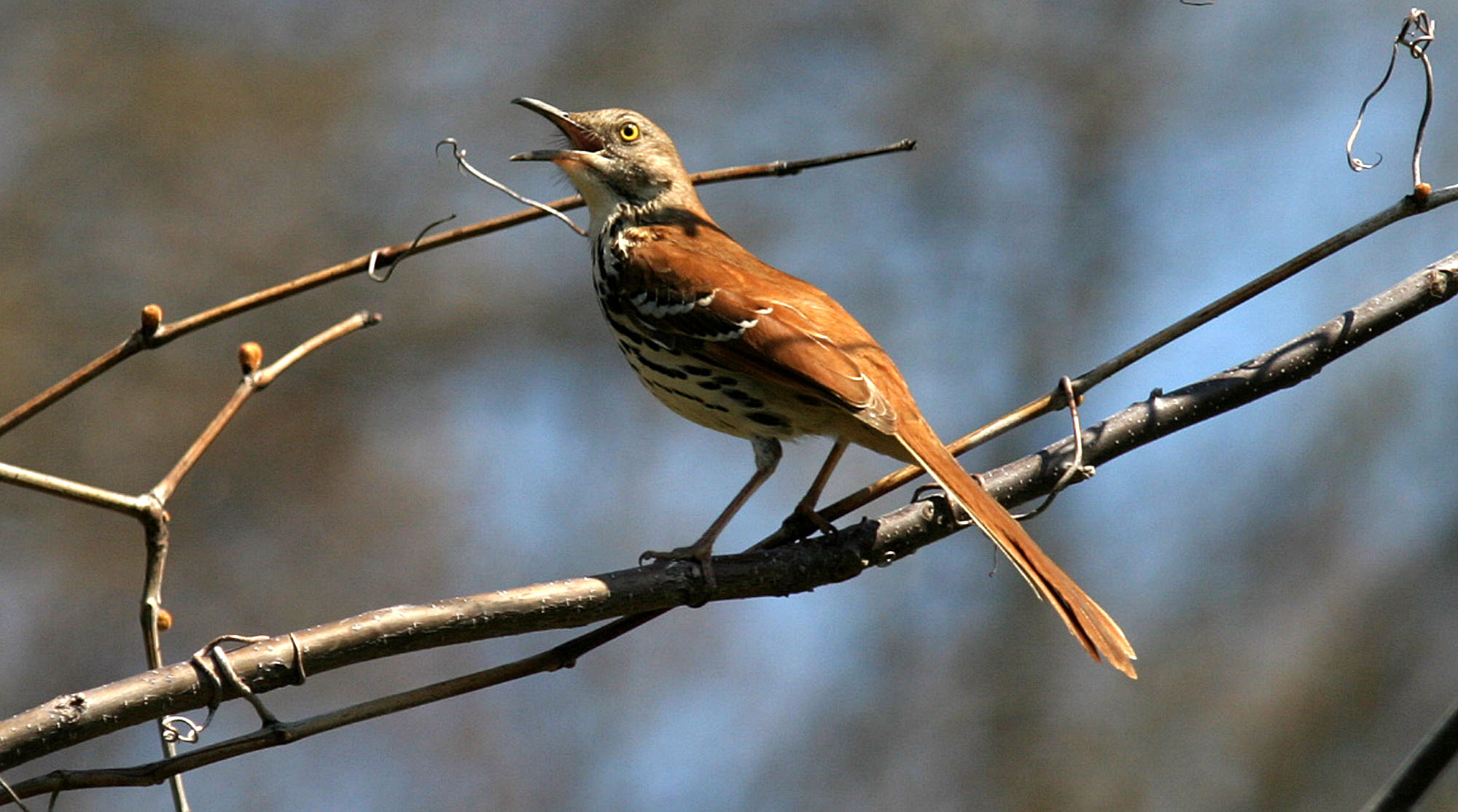Human-caused climate change could make Georgia an unsuitable place to live for the official state bird, the brown thrasher.
The National Audubon Society has new findings on global warming’s impact on bird populations across the United States.
The brown thrasher is not alone among state birds when it comes to being highly vulnerable to the effects of climate change.
The Audubon Society said if a 3-degree Celsius temperature rise happens by the year 2080, one quarter of official state birds could be driven from their homes.
David Yarnold, President and CEO of the National Audubon Society, said heat, heavy rain and sea level rise all have an impact.
“Climate change is happening to birds now,” Yarnold said. “It’s happening in people’s backyards in your communities, and it’s happening to birds that people care about and can relate to personally.”
Yarnold said if action were taken now to cut global temperatures, the number of birds affected by climate change would dramatically decrease.
Brooke Bateman, senior climate scientist with the National Audubon Society, said other Georgia birds, especially along the coast, may struggle with finding a place to go.
“They’re dealing with sea level rise and urbanization, meaning that their habitat is going to be sort of squeezed from both the oceans and from inland,” Bateman said.
The conservation group has designed a website that’s searchable by ZIP code.
It lists the birds in each area that are most likely to feel the effects of climate change.








